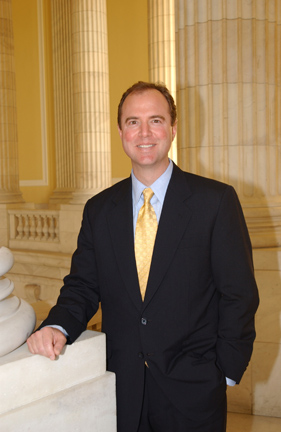Fighting to Extend Unemployment Benefits for All
Coronavirus has brought about an unprecedented economic crisis: the unemployment rate is the highest it has been since the Great Depression, countless businesses have been forced to permanently shut their doors and millions of American families are struggling to make rent and put food on the table.
In May, the House passed the Heroes Act, which would have extended the increased unemployment benefits until January 2021. Unfortunately, Senate Majority Leader Mitch McConnell refused to call a vote on the bill and refused to participate in any negotiations until it was too late. He allowed the $600 weekly unemployment benefits to expire on July 31, leaving millions of American families wondering how they are supposed to make ends meet.
On my most recent telephone town hall, held just before the unemployment benefits expired, a woman called in with a heartbreaking question about how she would survive without additional support: “What’s going to happen to people like me?”
I know that far too many Americans are asking themselves a similar question. That’s why we need to fully extend the increased unemployment benefits throughout the duration of this crisis – and we need to ensure that everyone can access them.
Los Angeles is a city of dreamers, a city of creators, artists and entrepreneurs seeking to make a better world. But the nature of our local economy that sets our region apart has also left far too many of our neighbors behind during the coronavirus economic crisis.
Thousands of workers in Los Angeles County are freelancers, contract workers, or in the gig economy – from entertainment industry workers like musicians and camera operators to those working in a wide range of fields, including rideshare drivers, private instructors, photographers and more. Many of these individuals earn income from a mix of sources, including traditional W-2 jobs, residuals or royalties, and as independent workers. But because of a gap in the CARES Act, passed by Congress in March, many of these workers are getting less unemployment assistance, and sometimes far less, than they need to make ends meet during this economic and health crisis.
The CARES Act created an enhanced unemployment insurance program that provided for longer term unemployment benefits, and which augmented state benefits with $600 per week as an added benefit. These benefits have helped millions of families stay above water, put food on the table and pay their rents, mortgage and bills. I pushed hard to make sure workers with non-traditional employment were covered, and they were, which has helped millions of Americans across the country. But because of the antiquated nature of our unemployment insurance system spread across states with different rubrics, some workers with multiple and mixed sources of income were left behind.
As a result, I have heard many heart wrenching stories from constituents: a freelance musician who is receiving just $75 per week in benefits, a self-employed photographer receiving $56 per week and a rideshare driver receiving $61 per week. This amounts to thousands of dollars lost just when they needed it most.
We must do more – we can’t leave anyone behind and we can’t allow our neighbors to face dire financial situations simply because of an unintended consequence in how unemployment benefits are calculated.
That’s why I introduced a bill with Congresswoman Judy Chu, the Mixed Earner Pandemic Unemployment Assistance Act, to rectify the issue and ensure no workers are left behind in our relief efforts.
We are facing an unprecedented economic crisis and millions of families across America are in dire financial straits. Any path to recovery must include immediate and sustained support to all those facing unemployment, including mixed earners, so that they can continue to make rent, keep the lights on, put food on the table, and begin the process of getting back on their feet once again.

